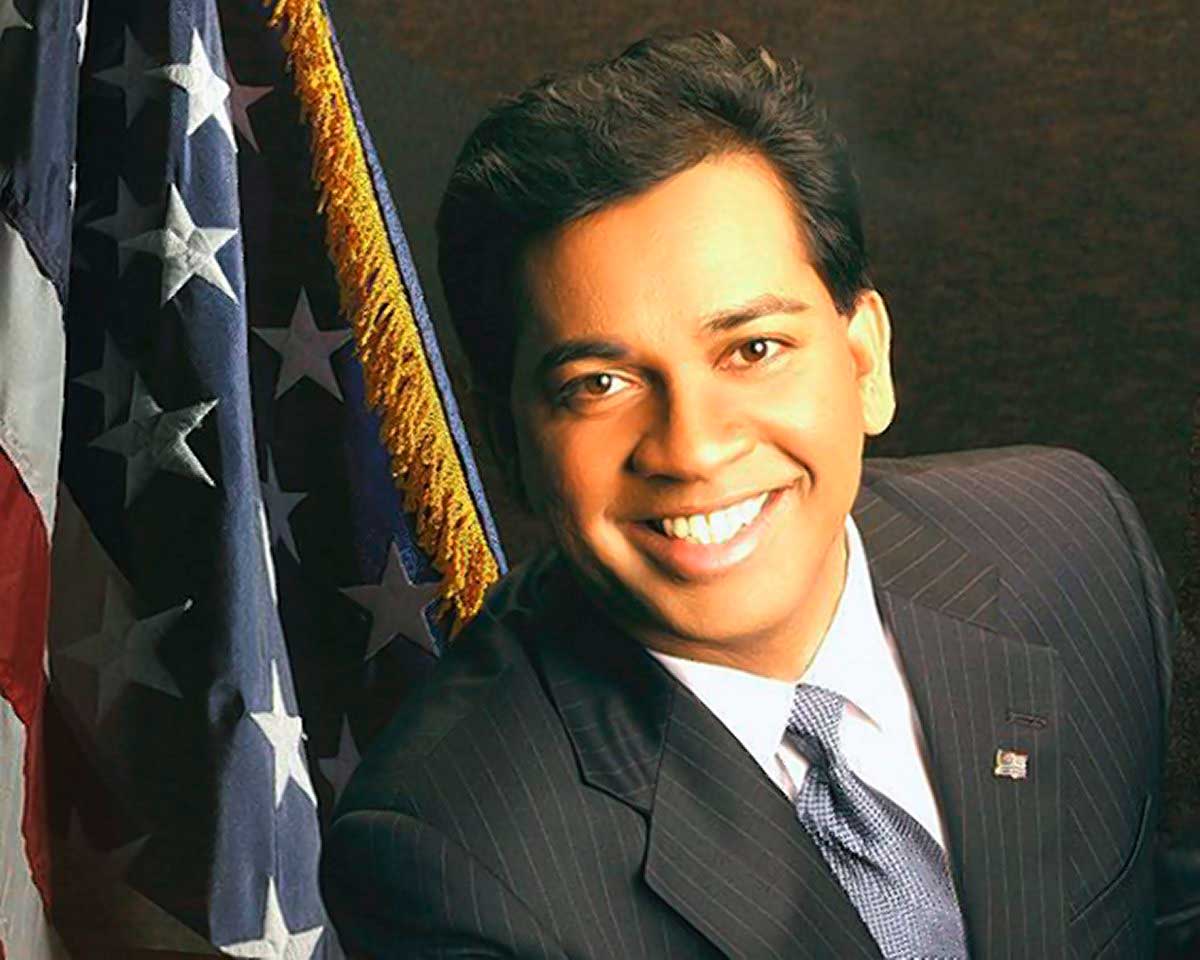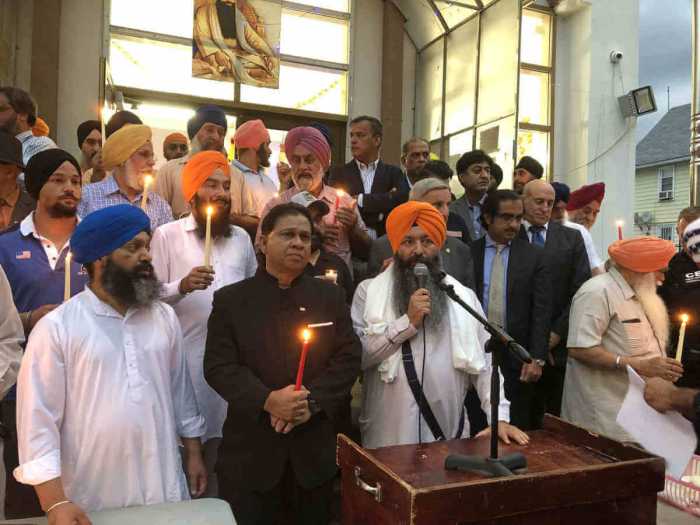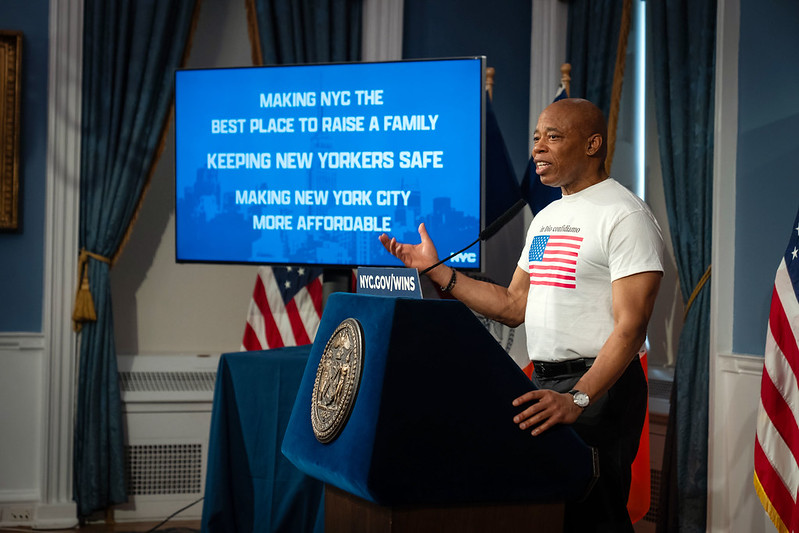The recent pardon of prominent commentator Dinesh D’Souza for campaign finance violations by President Trump because he was “selectively prosecuted” raises the serious question as to whether other cases, some of which are far more compelling than D’Souza’s, deserve similar treatment in accordance with the highest principles of American jurisprudence, equal treatment and democracy. None is more egregious than former Democratic District Leader Albert Baldeo’s.
In a recent Editorial, the Daily News Board opines in its June 1, 2018 edition: “Google — try it, Mr. President! — helps identify a few others who have been treated at least as harshly as D’Souza was.
Jenny Hou and Oliver Pan were charged with straw donor fraud for raising money for then-City Controller John Liu, a Democrat, and got sentenced 10 and four months in prison, respectively.
Albert Baldeo, a New York Democrat, was charged with crimes for soliciting approximately $15,000 in straw donations from seven individuals. Prosecutors pursued those allegations, ending in acquittal, and won conviction on related charges.
Sant Singh Chatwal, a Democratic fundraiser, got three years’ probation and a $500,000 fine for sending illegal contributions, via straw donors, to three Democrats.
Diana Durand pleaded guilty to funneling illegal contributions to Rep. Michael Grimm, a Republican, and was sentenced to three months in federal prison.
Trump now talks up the possibility of pardoning Martha Stewart, convicted of conspiracy, obstruction of an agency proceeding and making false statements to federal investigators. And Rod Blagojevich, convicted of lying to the FBI in connection with a scheme to sell an open Senate seat.”
Yes, Mr. President, Albert Baldeo’s case, and others, have far more compelling circumstances than those you have selected. Indeed, Baldeo never pled guilty to his alleged crimes, while steadfastly maintaining his innocence, was tried in Manhattan for “major crimes” committed in Queens, and was punished far more harshly. Baldeo endured 18 months imprisonment, 3 months home confinement, 2 years’ supervised release, paid $15,000 fines, had his law license suspended, and his District Leadership taken from him. He was convicted after a deadlocked jury was coerced into reaching a verdict by the Judge, after a first mistrial. Prosecutors have not used this statute again to indict the many hundreds of similar and even worse conduct amongst candidates running for office, and Baldeo’s selective injustice remains a blight on all of us, more so on our justice system.
The jury’s acquittals of all of Baldeo’s underlying charges confirmed that federal prosecutors abused federal laws to indict him on a false and fundamentally defective campaign theory that his use of his own money in a City Council election to repay his loans was somehow mail and wire fraud, a federal crime that carries a maximum of 20 years in prison. True to their unbridled power to sometimes institute false and patently bogus crimes, they secured convictions by an accommodating jury for their obstruction, setting yet another dangerous precedent to abuse their powers with wanton impunity, and adding to the legal quagmire such conundrums plague our justice system with.
More egregiously, Baldeo was convicted for obstructing crimes he did not, and could not, legally or logically commit on the fraud theory prosecutors concocted, because the contributions were not legally matchable as per CFB and NYC Campaign Finance Laws. Had prosecutors complied with their duties as ministers of justice and officers of the court, they would have fathomed that Baldeo’s contributions were not legally matchable and could not substantiate their theory to indict, as decreed by the NYC Campaign Finance Act, Chap 49. S 1136.1 s. 3-702 (3) (d): “Money orders aggregating over $1,000 are not matchable.” Although, the District Leader was acquitted of the underlying charges, his non-peer Manhattan jury, after a long deadlock, convicted him of obstructing crimes he did not commit, an unfortunate and illogical consequence a damning indictment can cause. Moreover, while the acts allegedly occurred in Queens, prosecutors superimposed their authority in a venue outside their Manhattan jurisdiction with indecent recklessness.
Baldeo, who was seeking to represent an emerging, ignored community, and his supporters and civil rights groups, have been crying out for justice since then with appeal after appeal, right up to the Supreme Court. Now, down to habeas appeal before the Second Circuit Federal Appeals Court, justice is long overdue! His precedent setting case now enables prosecutors to indict citizens on false underlying crimes, and convict them with impunity for ancillary tack-on crimes like obstruction, conspiracy and attempt. It stinks to high heaven that all of the witnesses against Baldeo in his remaining obstruction convictions were immigrants who were threatened by the FBI with arrest and deportation, and were given immunity for non-existant crimes.
Prominent commentator and Harvard educated lawyer Errol Louis warned in his op-ed in the Daily News back in Oct. 20, 2015, that the government should “Stop treating minor campaign violations like major crimes. By treating even minor lapses like Baldeo’s as major crimes, the CFB risks scaring away honest grass-roots candidates-the very people it is supposed to be helping take the plunge into public service…Regardless of the ultimate outcome, Baldeo’s case highlights the unsettling frequency with which candidates and their supporters get caught up in the ambiguities of the city’s campaign finance program and the arbitrariness of how violations get investigated and punished.” Once caught in their net, prosecutors routinely misled trial and appellate courts to preserve their putrid convictions.
Baldeo could not have been more correct when he protested that, “This whole thing is wrong. Judicial and prosecutorial hypocrisy, citing a 1995 Supreme Court case, United States vs. Aguilar,” where a federal judge was acquitted of worse conduct by his peers. That makes it all the more clearer that this collective sin and disgrace on our justice system and democracy diminishes all of us, and will affect our children, and generations to come. We must remember what President John F. Kennedy warned us about when he said, “The rights of every man are diminished when the rights of one man are threatened,” reinforced by Dr. Martin Luther King Jr. that “Injustice anywhere is a threat to justice everywhere.”
Albert Baldeo must be vindicated by the judicial system-or pardoned also. The issue is bigger than all of us!
Kris Gounden, Liberty Justice Center, 106-11 Liberty Avenue, Ozone Park, NY 11417: (718) 529-2300 (A civil and human rights organization)
























